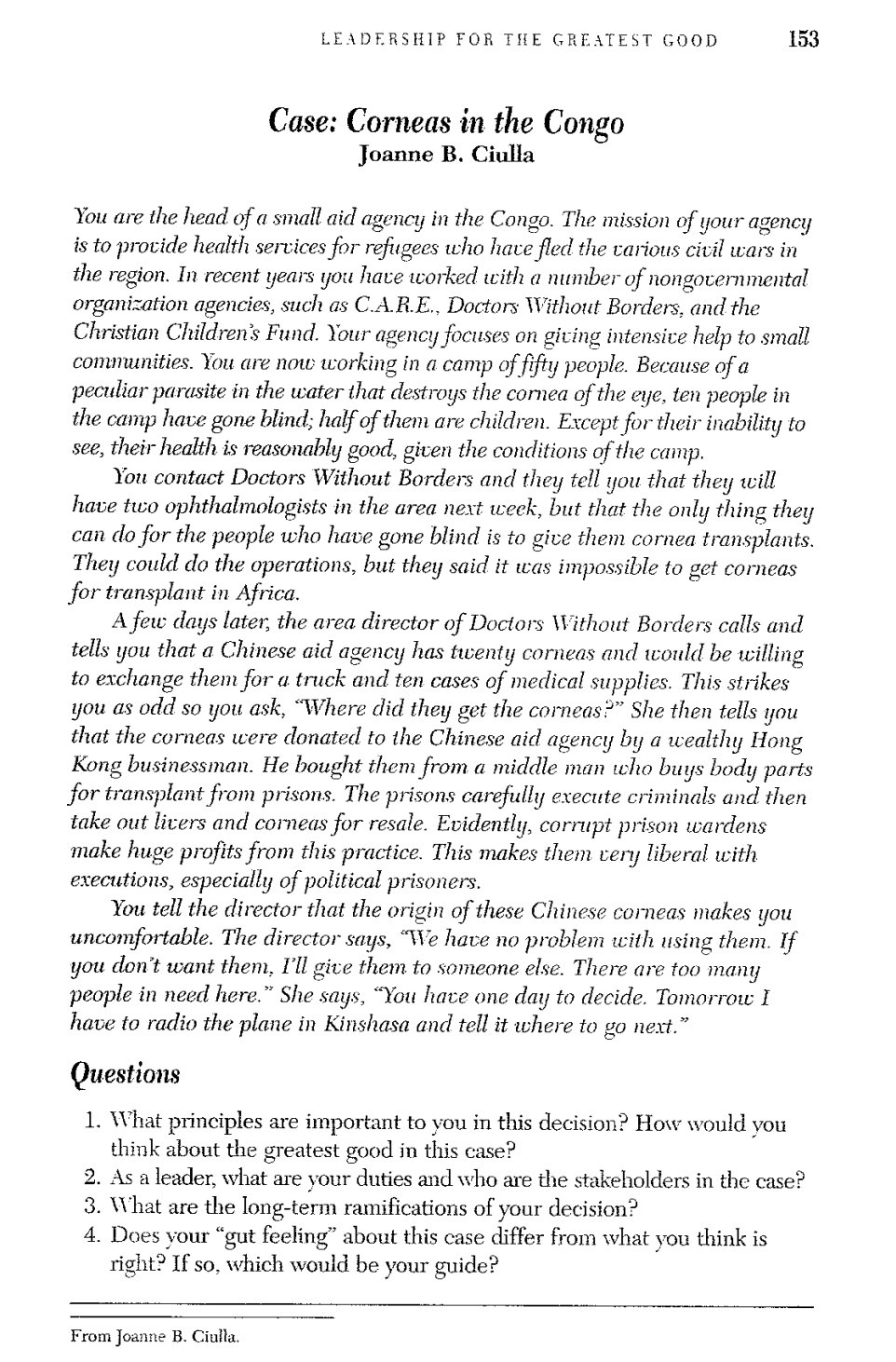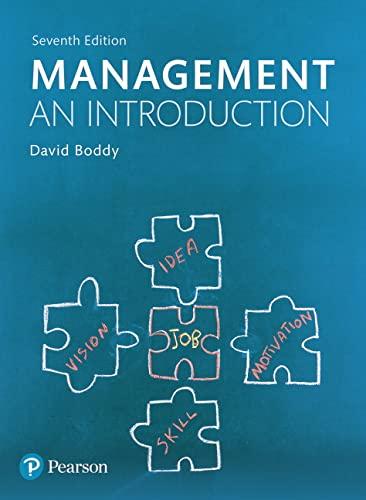Answered step by step
Verified Expert Solution
Question
1 Approved Answer
Read the case study 'Corneas in the Congo' which can be found in the Week Eight 'Documents and Resources' and answer the following questions: ANALYSIS
Read the case study 'Corneas in the Congo' which can be found in the Week Eight 'Documents and Resources' and answer the following questions:
ANALYSIS and DISCUSSION:
- What would you do nd which principles are important to you in this decision?
- How would you think about the greatest good in this case?
- As a leader what are your duties and who are the stakeholders in this case? What are the long term ramifications of your decision?
- Would you feel comfortable if your decision, including your name was published on the front page of the news paper?

Step by Step Solution
There are 3 Steps involved in it
Step: 1

Get Instant Access to Expert-Tailored Solutions
See step-by-step solutions with expert insights and AI powered tools for academic success
Step: 2

Step: 3

Ace Your Homework with AI
Get the answers you need in no time with our AI-driven, step-by-step assistance
Get Started


